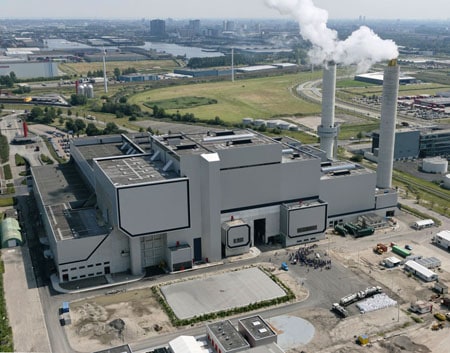With a €32.63 Euros tax now in place for exports of Refuse Derived Fuel (RDF) to the Netherlands, early signs are that there has been no immediate market shock in the commercial marketplace but problems await in 2020.
Local authorities who are exporting RDF look likely to be the hardest in the short-term with a number readying themselves for additional costs.
Prices for exports of RDF in the spot or new contract market are said to be just marginally higher than in December, mainly in the £95-104 range for most commercial and industrial material. However, some local authority contracts to the Netherlands have seen councils face higher charges, as the tax is deemed a change in law so can be easily passed on under local authority contracts.
At present it seems likely that local authorities are the hardest hit, with larger county councils exporting waste said to be especially concerned. They are facing either paying part or all of the tax or finding alternative disposal routes, notably to destinations outside of the Netherlands.
Absorb
Some of the energy from waste operators in the Netherlands have been willing to absorb the tax on a 50:50 or even 60:40 basis for now. This has been partly achieved for existing contracts because they have been at lower rates, in the £70 plus level which affords some margin for a price increase, but still to a level which is sufficiently below UK landfill or energy from waste rates.
However, there are expectations that market pressures will develop during 2020 as contracts come up for renewal and new contracts are sought. Other factors set to put the pressure on include: reduced demand from district heating schemes because of a mild winter (so far) in northern Europe; a tax of about £5 a tonne on RDF coming into force in Sweden in April; and price pressures because of competing demand for offtake from waste exporters in Germany and Italy.

The tax was passed by the Dutch Senate last month and has been in place since 1 January 2020 (picture: Shutterstock)
There is evidence that waste exporters in Italy and Germany are willing to pay higher rates than UK businesses to use energy from waste plants in Holland and elsewhere. With Italy especially short of energy from waste options, some Italian exporters are said to be willing to pay 200 Euros per tonne for RDF solutions in northern Europe.
Consequently, RDF exports at the higher prices may prove increasingly painful for UK operators, especially once baling and wrapping costs of £12-15 per tonne are included.
Municipal
On the municipal front in the UK, the clearest sign that RDF is not the almost automatic option that it has been over the past few years, came at the end of 2019 when Essex county council secured a landfill contract with Enovert for the landfilling of 200,000 tonnes per annum.
Elsewhere for example, in Norfolk the county council is in the process of securing treatment for 180,000 tonnes of residual waste per annum from 2021. With a portion of this currently exported as RDF, the council is an example of one authority which could face higher future residual waste costs as a consequence of the pressures in the RDF market.
“There is a risk of a significant budget pressure arising in 2020-21”
A Norfolk county council report recently noted: “A risk is emerging in relation to potential pressures within the council’s waste budgets which relates to the potential implementation of import taxes on Refuse Derived Fuel (RDF) in the Netherlands from January 2020. In the event that these are implemented, and subject to contractors’ decisions about export RDF material, there is a risk of a significant budget pressure arising in 2020-21. The Budget currently makes no provision for these potential additional costs due to the uncertainty around a number of variables which would have an impact on the overall level of the pressure.”
PFI
PFI schemes, such as that run by Renewi for the East London Waste Authority are also facing pressure on prices which is expected to eat into margins. However, the prices are not expected to see material landfilled as a result because there is sufficient leeway in the numbers involved and partly because of requirements to avoid landfill.
Overall tonnages of RDF exported to the Continent appear to have fallen significantly over the past year, continuing a downwards trend. Domestic market outlets will have to be found for residual waste and UK outlets are continuing to develop.
Projects
Later this year Cogen’s Hooton Park is expected to come on stream, the Rookery Pit project is moving forward and a host of other projects are at drawing board stage or are further forward. And there is also a trend for operators to expand the capacity of existing plants, such as Suez announcing expansion at its Severnside plant and last year an increase at its Suffolk facility at Great Blakenham. New plants are also proposed in southern England, Rivenhall in Essex, Grundon/Viridor in Sussex, Wheelabrator near Andover and a Veolia facility.
The post RDF sector awaits full impact of Dutch tax appeared first on letsrecycle.com.
Source: letsrecycle.com Waste Managment



